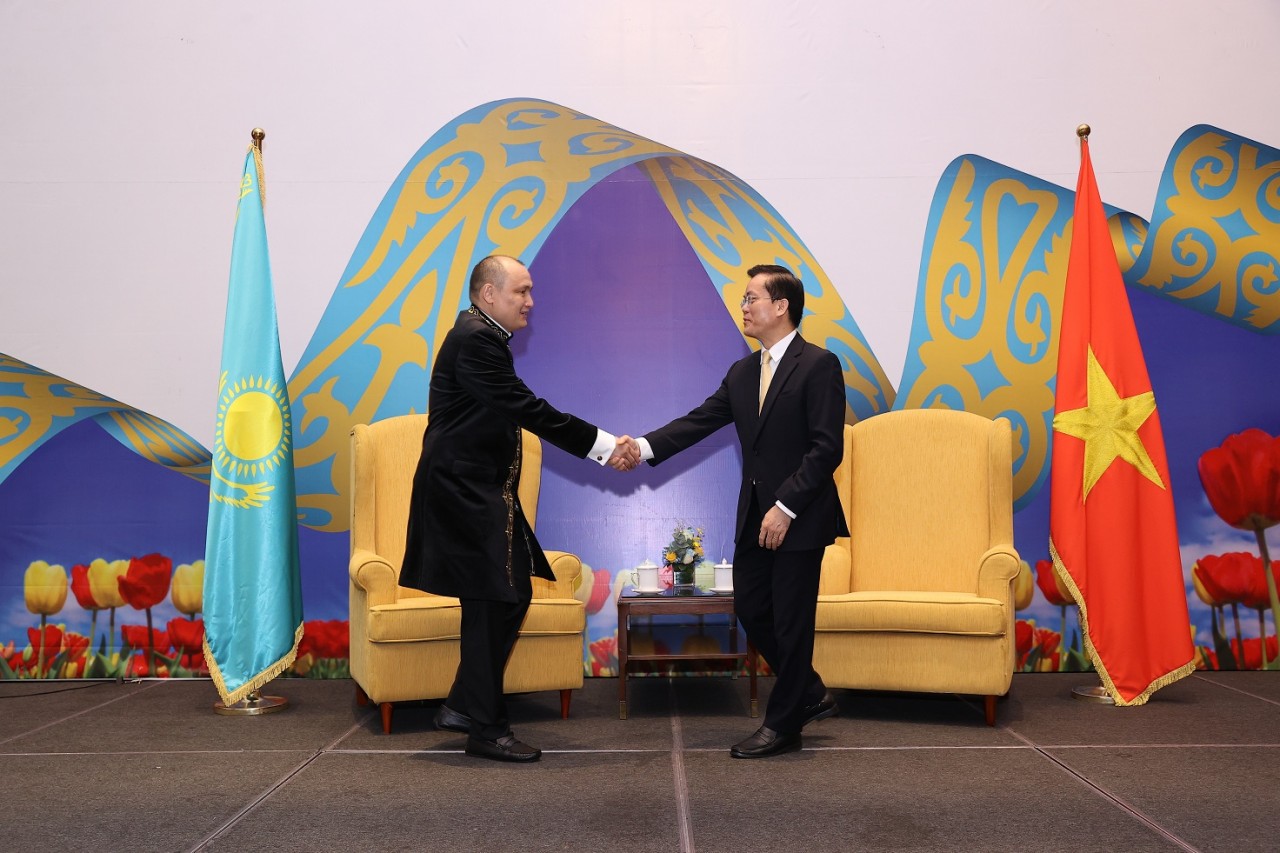Deputy Minister of Foreign Affairs of Vietnam Ha Kim Ngoc emphasized the potential for bilateral tourism during the 33rd anniversary of the Declaration of State Sovereignty of Kazakhstan (October 25, 1990 – October 25, 2023) on October 23 in Hanoi.
Among the distinguished guests at the event were Deputy Foreign Minister Ha Kim Ngoc; Nguyen Anh Tuan, Member of the Party Central Committee, Secretary of Provincial Party Committee, and Head of the Delegation of National Assembly Deputies of Bac Ninh province; other officials from the Party, State, and Government, National Assembly; as well as representatives from various ministries, departments, and agencies of Vietnam, ambassadors, chargés d’affaires, and senior diplomats from Asian, Arab, African, European, and Latin American countries.
Enhancing tourism cooperation
On August 21, Vietnam and Kazakhstan signed a bilateral visa waiver agreement for citizens holding ordinary passports. Under this agreement, citizens of Kazakhstan and Vietnamese citizens holding passports valid for at least six months are exempt from visa requirements for entry, exit, transit, and temporary stays in Vietnam and Kazakhstan for a maximum of 30 days from the date of entry.
Following the signing of the agreement, several famtrip groups from Kazakhstan visited Vietnam to explore its tourism potential. In September 2023, the central province of Khanh Hoa welcomed famtrip groups from Kazakhstan, who visited Nha Trang to assess its tourism potential.Khanh Hoa.
 |
| Deputy Minister Ha Kim Ngoc (right) and Ambassador Kanat Tumysh at the celebration. Source: Kazakh embassy in Vietnam |
Kazakhstan Ambassador to Vietnam Kanat Tumysh emphasized that airlines from both countries operate six flights per week from Astana and Almaty to Nha Trang and Phu Quoc, facilitating tourism and cultural exchanges between the two nations.
Aiming for US $1.5 billion in bilateral trade
During the celebration, Deputy Minister Ha Kim Ngoc and Ambassador Kanat Tumysh highlighted progress in bilateral relations. In 2022, bilateral trade increased by 23% compared to 2021. In the first eight months of 2023, bilateral trade increased 2.7 times compared to the same period in 2022.
Ambassador Kanat Tumysh mentioned that during his visit to Vietnam in August 2023, Kazakh President Kassym-Jomart Tokayev and Vietnamese leaders extensively discussed measures to promote bilateral cooperation in trade, economics, investment, energy, transportation and logistics, agriculture, industry, culture, and people-to-people exchanges.
 |
| Passengers from Kazakhstan in Nha Trang. Source: nld.com.vn |
During the visit, the two countries signed several cooperation documents, including the Joint Action Plan to promote economic and trade cooperation between the Governments of Vietnam and Kazakhstan for the period 2023-2025; and memorandums of cooperation in the fields of tourism, investment, postal services, oil and gas, transportation, and television.
Ambassador Kanat Tumysh and Deputy Minister Ha Kim Ngoc believe that these signed documents will generate strong momentum for expanding cooperation between the two countries in the future, contributing to achieving the target of reaching a bilateral trade turnover of US $1.5 billion by 2030.



